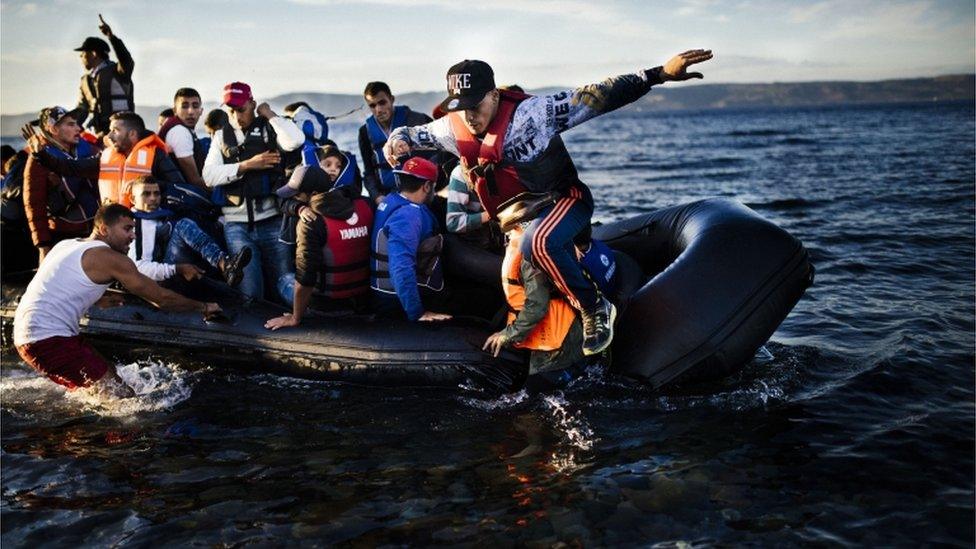Cardiff baptisms for religious asylum seekers fleeing Iran
- Published
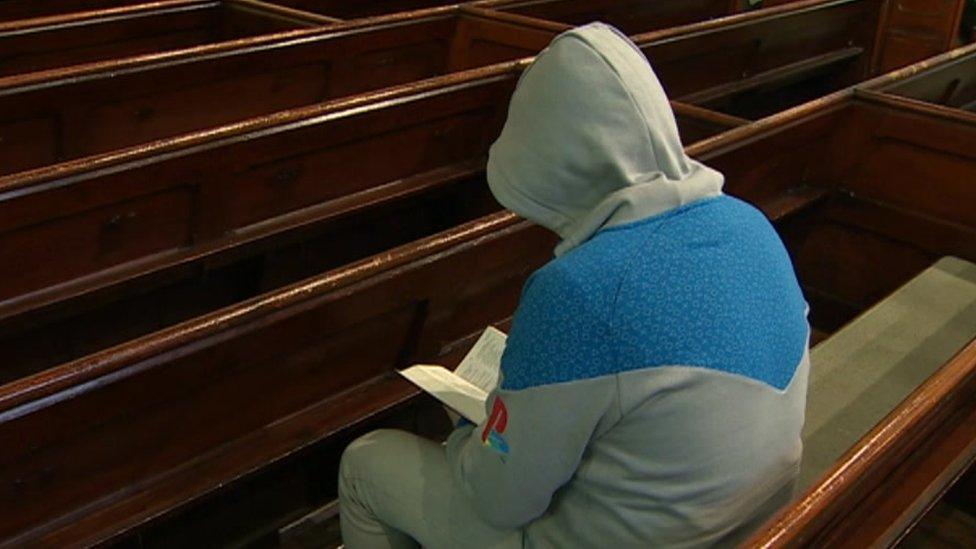
An asylum seeker who fled Iran over fears he would be killed for converting to Christianity is one of 300 to be baptised at a Cardiff church in the past two years.
Conversion from Islam to Christianity is punishable by death in Iran and converters said their decisions mean they can never go home.
Its constitution recognises the faith of Jews, Christians and Zoroastrians.
But people from a Muslim background are not free to worship in a church.
Daniel, not his real name, fled to the UK after authorities in Iran discovered he was worshipping Jesus in an underground Christian movement known as "house churches".
Now living in Cardiff, he officially converted from Islam when he was baptised two years ago.
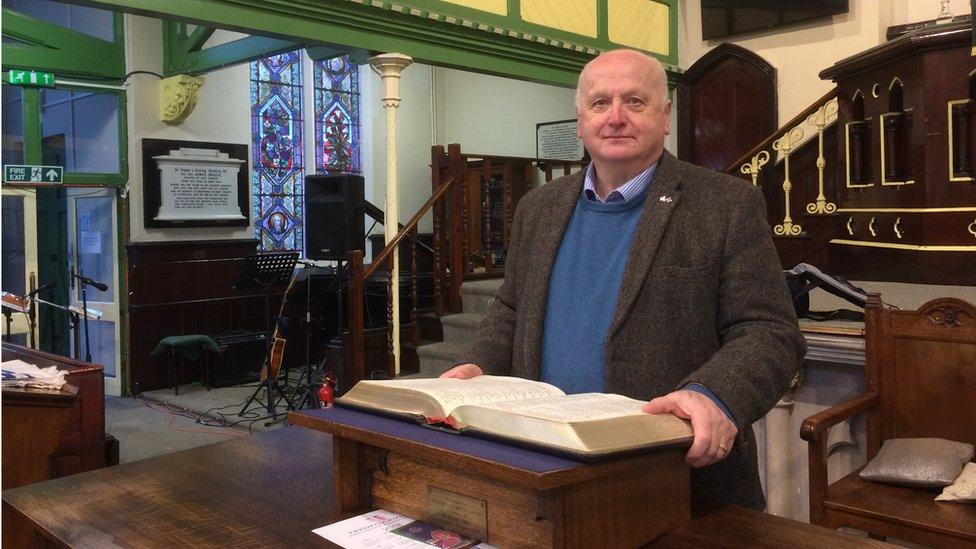
Pastor Phylip Rees said he had seen wounds on a parishioner who claimed he had been tortured because of his faith
Daniel, 31, said he was in no doubt he would be killed if he returned to Iran.
"If I went back, the authorities would arrest me. They would put me in jail and I would be killed, I would be hanged," he said.
"They will kill me, me and my family. I am not afraid because I will be meeting Jesus but I am afraid about my family."
Daniel claims an Iranian Christian convert friend was murdered and his remains were scattered outside the doors of four churches in his home city as a warning to others thinking of renouncing Islam.
In the past two years, 324 asylum-seekers have been baptised by Tredegarville Baptist Church in Cardiff, where 95% of the congregation are immigrants.
The majority baptised there are Iranian but some are Kurds and Afghans.
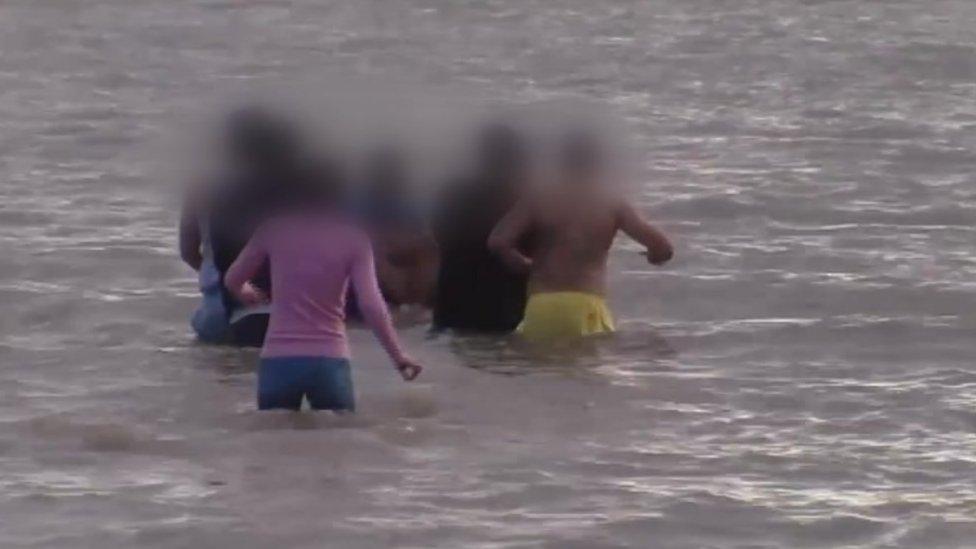
About 60 converts including Daniel were baptised in a mass ceremony at Jackson Bay, Vale of Glamorgan, two years ago
Pastor Phylip Rees, who has baptised many asylum seekers in Cardiff and helps with their bids to remain in the UK, said he was in no doubt the vast majority who attend the church were genuine in their faith.
He said he seen evidence Iranian converts at the church had suffered torture in their homeland, including one man who claims he was branded by the authorities.
Pastor Rees also rejected suggestions some parishioners could be using baptism as a way to secure permanent residence.
He said he had refused to support applications previously when he had doubts.
Home Office guidelines for examining asylum claims state the credibility of a faith conversion "needs to be established to a reasonable degree of likelihood".
It said that was likely to include being baptised, preparing for baptism, attending worship and being known to the church's leadership and fellow believers.
The Home Office said: "Those who demonstrate a well-founded fear of persecution in their country on account of their religion or belief are not expected to return there."
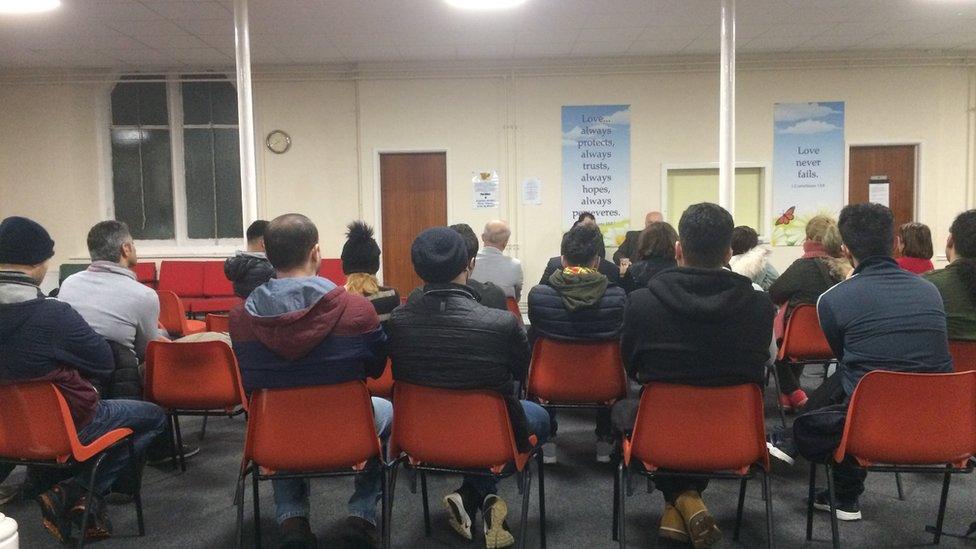
Dozens of Iranian parishioners attend weekly prayer groups at the church in Cardiff
There are no official figures for genuine religious asylum seekers and some in the congregation said they had been waiting more than six years for a decision to be made about their claim.
But Iranian Christian groups are growing in number and can now be found in churches in cities including Glasgow, Liverpool and Birmingham.
Without them, Pastor Rees said the future of some churches would have been uncertain.
"Tredegarville would have closed but for this opportunity to join the Lord in his work of reaching these people," Pastor Rees said.
"I'm sure that the other churches would say that the people who are coming to them from other lands as refugees and asylum seekers are a blessing to them as they are to us."
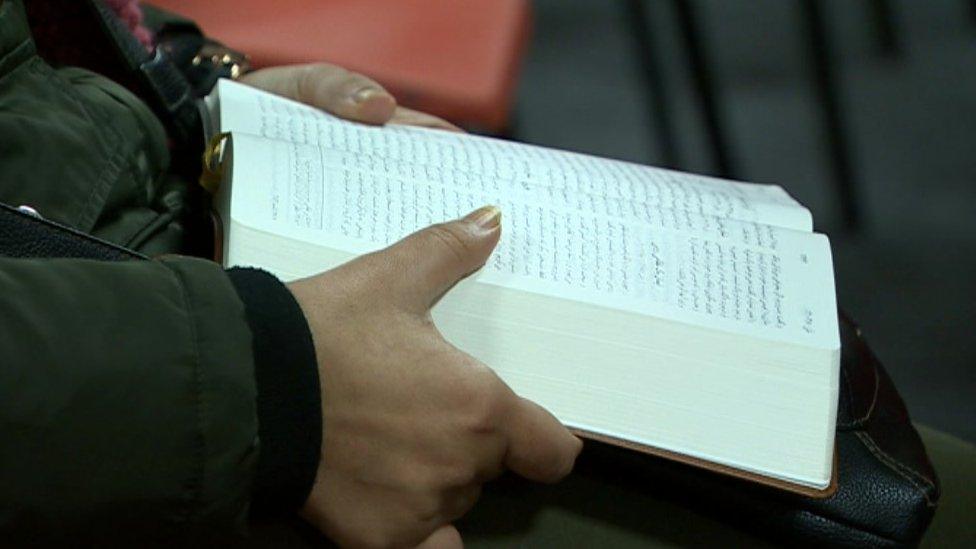
- Published5 June 2016
- Published20 August 2015
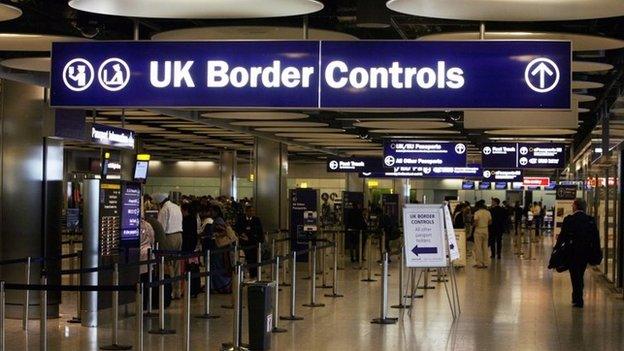
- Published19 September 2017
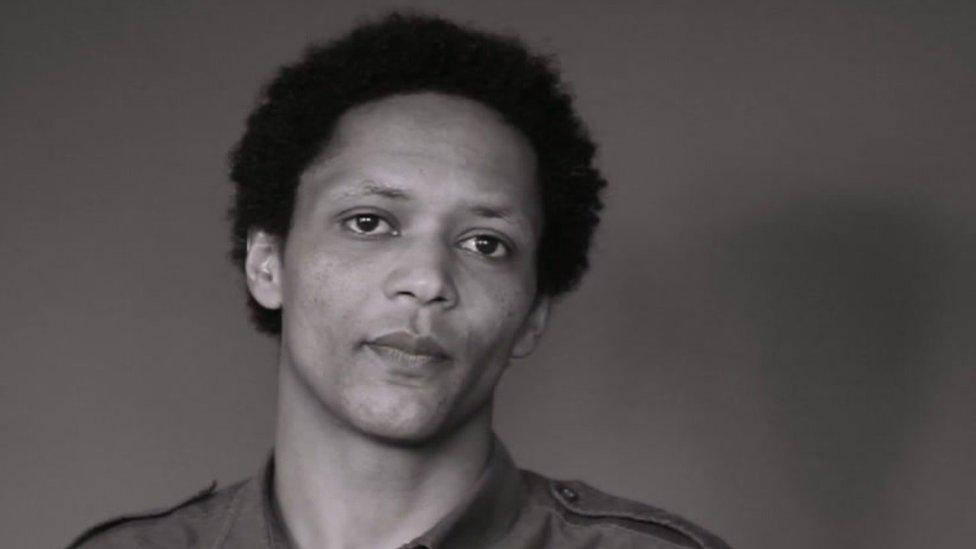
- Published14 January 2014
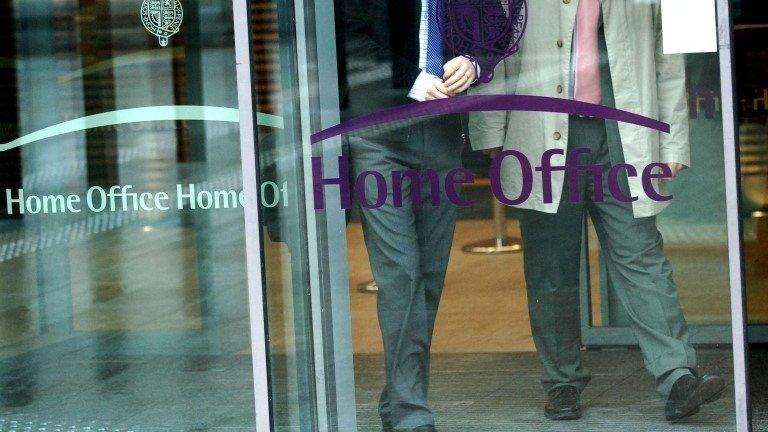
- Published4 December 2016
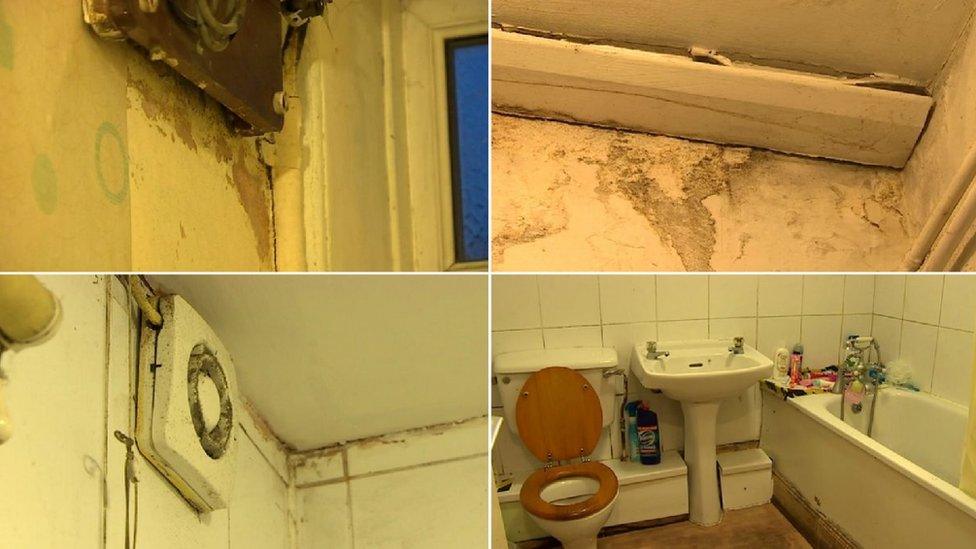
- Published24 July 2017
